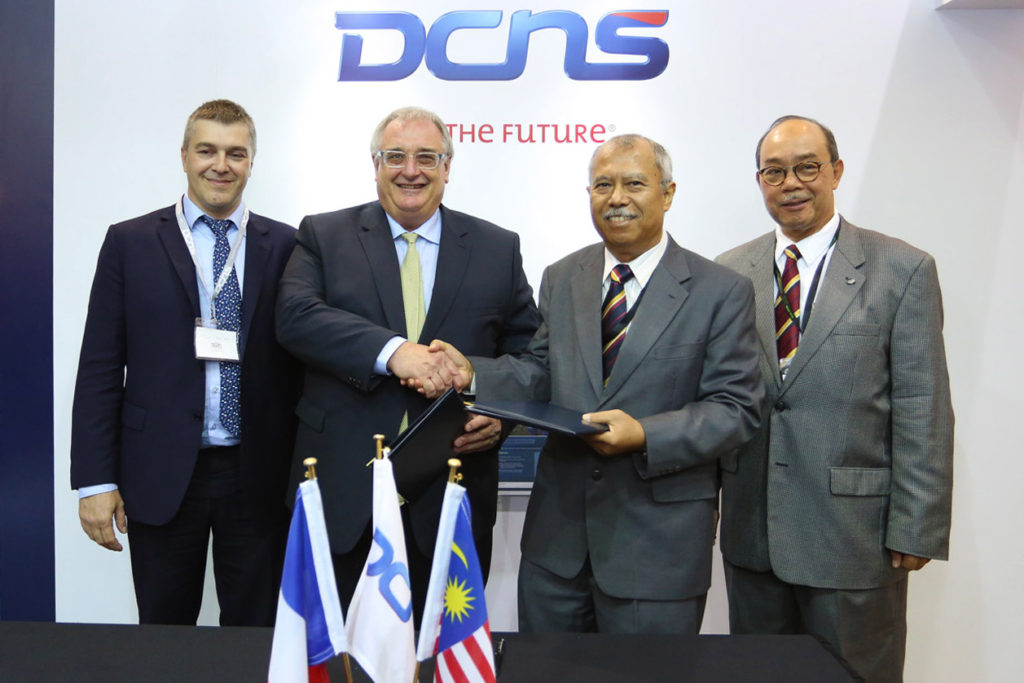At the occasion of DSA Exhibition in Kuala Lumpur, the two entities have signed a Memorandum of Agreement (MoA) to conduct together a pre-feasibility study aiming at identifying the potential opportunities of developing a pioneer OTEC plant on the Malaysian island of Layang-Layang. In the frame of this agreement, DCNS and UTM OTEC will put together their complementary expertise to define the technical and commercial feasibility of such a project.
Ocean Thermal Energy Conversion uses the difference of temperature that naturally exists in tropical waters between the surface water (about 25°C) and deep water (5°C at a depth of 1,000 meters) to create electricity. It is a non-intermittent baseload energy source that could represent medium-term green alternative to so-called “fossil” fuels (gas, diesel, coal), which are still used massively on isolated tropical sites (islands) that have no connection to continental electrical networks.
The island of Layang-Layang, situated off Sabah in the North of Malaysia, is well positioned for the development of OTEC with a temperature difference above 20 degrees throughout the year.
Thanks to today’s agreement, UTM OTEC and DCNS will bring their complementary expertise to conduct a pre-feasibility study that will help to determine and define the possibilities to develop a pioneer OTEC plant on the island. The development of this project could represent a great opportunity for Layang-Layang to reduce its dependency on coal-fired power plants.
 DCNS’ Laurent Albert, DCNS CEO Hervé Guillou, UTM Prof Dr Md Nor Musa and UTM Prof Dato’ Ir Dr A. Bakar Jaafar
DCNS’ Laurent Albert, DCNS CEO Hervé Guillou, UTM Prof Dr Md Nor Musa and UTM Prof Dato’ Ir Dr A. Bakar Jaafar
Aware of the great potential of OTEC in Malaysia, UTM created in 2013 the research center UTM OTEC dedicated to the development of this technology, supported by the Malaysian Ministry for Energy.
The OTEC technology developed by DCNS, currently being improved in Reunion Island and later installed in real conditions in Martinique, could represent an innovative solution for the development of this new source of energy in Malaysia.
“The outcome of the study would allow Malaysia to scope the nature and extent of its pioneer OTEC plant to generate electricity or to produce hydrogen fuel, and water” said Prof Dato’ Ir Dr A. Bakar Jaafar. “A game changer!” he added.
Hervé Guillou, DCNS CEO, declared: “DCNS is a long-term naval and maritime partner of Malaysia and the agreement signed with Universiti Teknologi Malaysia OTEC Centre is a step further in our cooperation. OTEC is a promising technology for tropical insular territories like Layang-Layang and we are committed to bringing our expertise to identify all the opportunities to develop OTEC projects in the region”.